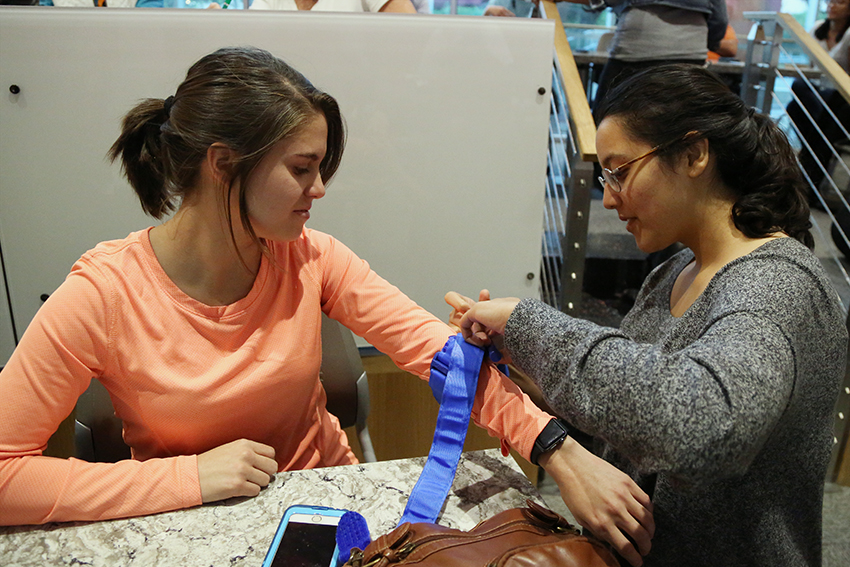The Campus Safety office created a goal in 2017 to provide free hemorrhage control and automated external defibrillator (AED) training to 10,000 students by 2022. To reach that goal, the office is working to offer free AED training and has been offering free Stop the Bleed classes through the Dell Medical School to students, staff and faculty.
Jimmy Johnson, assistant vice president of campus safety, said funding is an obstacle to expanding Stop the Bleed training and AED training.
Claire Zagorski, director of Longhorn Stop the Bleed, said the UT chapter of the Stop the Bleed national awareness campaign is currently unfunded. Johnson said the Campus Safety office has allocated $10,000 to put toward AED training, which consists of teaching attendees on how to properly use an AED.
“We have identified a funding mechanism to subsidize the costs associated with this training,” Johnson said in an e-mail. “We will partner with providers to formulate a plan moving forward. A variety of strategic efforts will be developed to help share the free training opportunities
with students.”
Johnson said he created the goal after former student Harrison Brown was stabbed on campus. While Johnson said Brown’s wounds would have been fatal even with a tourniquet, he said it was clear from the incident students did not know what to do.
“Our original target was specifically for the hemorrhage control because that bore out of the Harrison Brown attack, but we figured if we can package (AED and hemorrhage control training) together, it provides a more informed University body,” Johnson said. “Bystander intervention has proven to be very critical during any type of casualty events, so we want to make sure that our student population, faculty and staff are prepared to act in those instances.”
Jonathan Robb, director of emergency preparedness, said the Campus Safety office will work with UT RecSports and HealthPoint to provide the free AED training once funding is secured. He said those organizations currently offer training to the UT community for a $30 to $65 fee.
“(AEDs) are designed (for the) general public to grab them and use them,” Robb said. “(The machine is) going to analyze whether it can effectively do a shock or not. It won’t allow you to do one if it doesn’t think you need one.”
Zagorski said she founded the UT chapter in 2017 after Brown’s death to train students to use Stop the Bleed kits. Robb said the Campus Safety office began placing kits in 2017 in the safety hubs in celebrated entrances, which is an entrance compliant with the Americans with Disabilities Act that can be accessed after business hours with a UT ID.
Zagorski said the organization has trained about 3,300 people, and she estimated one-half to two-thirds were students. Zagorski said every month trainees can learn how to use a tourniquet or create a makeshift one out of clothing and to call 911 first.
“It’s a lot of reemphasizing simple measures to try to get it into your lizard brain because we know that if someone is bleeding in front of you, you’re not going to be able to calmly and rationally think,” Zagorski said.




















